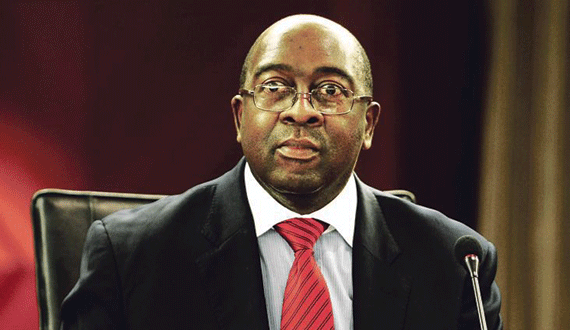
SOUTH AFRICA’S nuclear co-operation agreement with the Russian Federation signed six weeks ago remains a mystery to most government officials, with the Cabinet subcommittee on energy security yet to see it and the Treasury still in the dark.
Director-general of energy Wolsey Barnard, the accounting officer of the department, refused to say if he had seen the document yet. But senior government officials said he had not.
The agreement was signed six weeks ago amid confusion over its contents.
While Russian State-owned nuclear company Rosatom, which signed the agreement on behalf of Russia, implied an agreement for the procurement of eight nuclear reactors by SA from Russia had been struck, South African senior government officials described it as only “a framework agreement”.
The secrecy with which it has been treated is highly unusual for an international agreement, which is usually lodged with the treaty section of the Department of International Relations and Co-operation immediately after its signing.
In this case, though, the department officials claim that they are “in a preparatory phase” and will only make the agreement public once they have signed agreements with all nuclear vendor countries.

In reply to questions sent to the deputy director-general for nuclear in the Department of Energy, Zizamele Mbambo, a departmental statement on Tuesday said that the Cabinet subcommittee had not yet seen the agreement signed with Russia.
It said that it “will be tabled after a preparatory phase that the department is currently engaged in. Two more agreements are still to be finalised with China and Japan”.
- Chamisa under fire over US$120K donation
- Mavhunga puts DeMbare into Chibuku quarterfinals
- Pension funds bet on Cabora Bassa oilfields
- Councils defy govt fire tender directive
Keep Reading
A spokesman for Finance minister Nhlanhla Nene, Jabulani Sikhakhane, said that the minister had not seen the agreements either. However, this would not be unusual unless financial commitments were contained in them.
The agreement with China could be signed as early as the end of this week. SA already has an agreement that was signed with the Republic of Korea in 2011.
Mbambo and the group executive for corporate services at the South African Nuclear Energy Corporation, Xolile Mabhongo, the two officials who are leading the process of signing the agreements, have repeatedly said that the bilateral agreements cannot be made public before all possible vendor countries have signed, in order to protect proprietary commercial information they contain.
However, the Korean agreement, which Business Day has seen, contains no proprietary information.
French diplomatic sources said framework agreements such as the recent nuclear agreement did not contain “commercial or proprietary information that would require confidentiality” and they did not believe that to be the case with the South Africa-France agreement.
Bilateral agreements on nuclear co-operation are usually fairly standard and commit to the use of nuclear technology for peaceful means and not to enrich uranium more than 20%, as well as outlining various areas of co-operation.
It would not be unusual to include in such an agreement that co-operation includes the design and the construction of the nuclear power plants.
Notably, such agreements also specify that the governments of the countries where the nuclear plants are constructed will be responsible for the insurance in the event of an accident.
An earlier draft of the agreement that was circulated a year ago caused alarm both in the Department of Finance and in the office of the State law advisor due to commitments relating to tax breaks and its ambiguous language, which at face value appeared to commit South Africa to a Russian procurement.
Sources in the Department of International Relations and Co-operation also say that while the agreement with France was prepared in line with the protocols for international agreements, the Russian one was not.
However, the Department of Energy has denied this, saying that all the necessary protocols were followed. All the agreements will eventually have to be tabled in Parliament in order to be binding. The Department of Energy said that this would take place when all the agreements were signed.
– BDLive










